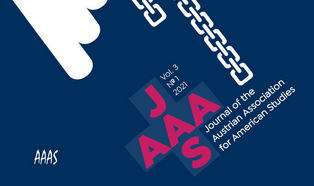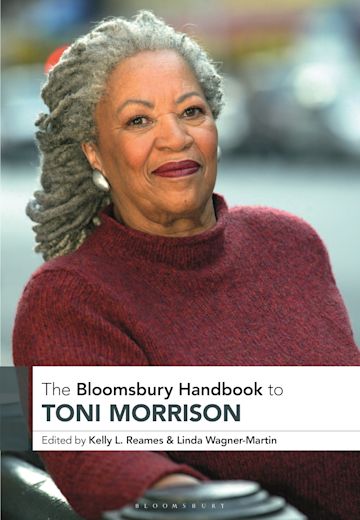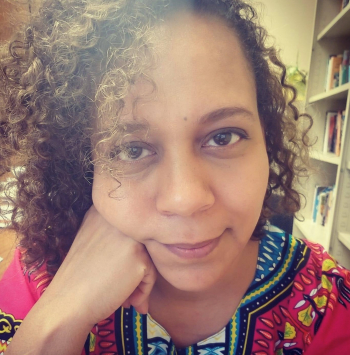By Lesley Larkin
My parents were both great readers: My mother loved family dramas and stories about misfits and outsiders. Her favorite authors were Anne Tyler, Carson McCullers, and Tennessee Williams. Although she was born and raised in Los Angeles, her mother was from West Virginia, and she felt a pull, as the latter two names suggest, to stories about the South. My father reads widely but is a lay expert in science fiction. I vividly remember going to the mall bookstore with my dad, as a middle-schooler, to get my copy of Dragonflight signed by Anne McCaffrey. Years later, when I was pursuing my Ph.D. in English, we went together to see Octavia Butler, not very long before her untimely death.
I was lucky to grow up in a house full of books, where reading was something my parents and older sister openly took pleasure in, rather than something that was “good for you.” My mother and father always had a book in hand, and I lost whole weekends to Madeleine L’Engle or Isaac Asimov. As a young person, I was drawn to science fiction and fantasy. I took pleasure in the experience of entering an unfamiliar world and gradually becoming familiar with it, however imperfectly. It was the same pleasure I took in learning Spanish and, eventually, in studying and working abroad: The feeling of the world opening up before my eyes, being so much bigger than I knew. (Before travel became a reality for me, The Price is Right was a significant source of fantasy for me. I could never believe it when someone passed on a travel package in the Showcase Showdown in favor of a car!)
Recently, as I’ve turned more and more to speculative fiction in my work, I’ve come to some realizations about these early reading experiences. Samuel Delany’s essays on science fiction, especially, have helped me to articulate something I knew without really knowing it. Delany argues that science fiction requires a certain discipline of its readers; because the world of the text is decidedly not the world of the reader, the reader must work to piece together clues provided by the author in order to understand the “rules” of the fictional world. How do things work here? How do you pronounce this name? What is gender in this society? Who has power and who does not? Asking—and trying to answer—these questions as a young reader of science fiction and fantasy trained me to ask them of texts across the literary spectrum, and to never assume that I knew what was really going on in any story.
Indeed, Delany recommends science fictional reading for all reading encounters. I love the story he tells, in “Science Fiction and ‘Literature’—or, The Conscience of the King,” about a nineteenth-century historian and “great reader of literature” who spends two years limiting his literary reading to science fiction (80). After this immersion, he returns to Pride and Prejudice and finds it transformed. Suddenly, he has questions: “What kind of world would have had to exist for Austen’s story to have taken place”? (81). And is this fictional world equivalent to the real world of that period? (His answer, incidentally, is no.) It turns out that the defamiliarizing effect of science fiction extends well beyond any specific reading encounter, taking even the most well-known works, genres, and periods and turning them into something new, prompting us to ask questions we might previously have taken for granted about the society described, its unwritten rules, its relations of power. These questions naturally extend to the reader’s world as well; in such moments, the “direction” of the reading encounter can reverse, as the reader herself finds herself being read.
I didn’t actually read a lot of science fiction in college. Instead, I started to immerse myself in the American literary canon and the (then) newly canonized giants of African American literature. My encounter with Toni Morrison, Richard Wright, Zora Neale Hurston, and Ralph Ellison, in my first African American literature class, was life-changing. I had grown up a middle-class white girl in the suburban Pacific Northwest. The number of Black students at each school I attended was in the single digits, and I had no Black teachers. I did not study any books by Black authors throughout my K-12 schooling, and the few books assigned that had to do with Black people, non-Western and Indigenous societies, or race and racism were written by white authors (Pearl S. Buck, Margaret Craven, Alan Paton, Harper Lee). To finally encounter Black writers was like seeing the ocean for the first time, and the immensity of what I hadn’t known before struck me like a tidal wave. As important as the beauty and virtuosity of these works, and the knowledge and perspective they provided, was the lesson they taught me (with guidance from excellent teachers) about my own limitations and the limitations of “the canon.” No book is universal. Every book is shaped by context. The human experience is far vaster than my own.
I went on to study American literature in graduate school and, eventually, to write a dissertation that grew into a book on African American literature and the politics and practices of reading. I see now that my interest in how Black authors manage a plural audience (what James Weldon Johnson called, in 1928, a “double audience”), and in the responsibilities that attend reading across lines of difference, grew out of those early experiences with science fiction and fantasy. As a white reader of Black texts, I regularly find myself entering unfamiliar worlds and working to become more—but imperfectly—familiar. I also experience the defamiliarization of my own reality; seen through the lens of the African American literary and critical tradition, the unwritten rules of the society I live in become legible and available for critique. And I discover what it’s like to be “read” by African American texts, to make myself vulnerable to interrogation, interpellation, disidentification, and all manner of reassessments of the self.
I just finished teaching Toni Morrison’s Beloved for perhaps the tenth time. This is one of the books that set me on the path I’m still on—it’s a book that changed the course of my life. I can still remember the used copy I purchased for that first African American literature class. It was a hardcover, and the dust jacket was missing. I can call up the smell and the sensation of the soft and, in a few places, stained pages. I remember the warm spring air wafting through my dorm room window, as I read and re-read that startling, disorienting opening line: “124 was spiteful.” What kind of book begins with a number? I must have read it six or seven times before deciding to just go on and figure things out as I went, Delany-style. I remember the pit in my stomach as I read about the blend of beauty and terror at Sweet Home, and as I gradually realized what Sethe had done—and why. What kind of world would have had to exist for this story to take place? Where is there continuity between that world and my own?
This book enveloped me, and it’s fitting that my memory of it is so physical, given the novel’s revolutionary articulation of “rememory”—memory that is, among other things, embodied and material. I have grown up on this book, from that first reading more than twenty-five years ago, when I was a young, naïve, sensitive, curious undergraduate student, to now, when I am surprised to find myself a middle-aged mother and senior professor, somewhat cynical, teetering on the edge of burnout (after this year of pandemic and protest), and yet still curious and perhaps more sensitive ever—certainly still brought to tears by Paul D’s “You your best thing, Sethe. You are.” Offering this book to my students, watching them grapple with its aesthetic and ethical complications, listening to their epiphanies about American history, reading their tentative analyses of the novel’s relevance to our present moment, and suddenly my own first, faltering encounter is right back before my eyes.
Near the end of his epistolary essay Between the World and Me (a work that, not incidentally, uses a great detail of science fictional language and imagery), Ta-Nehisi Coates writes this to his son:
Part of me thinks that your very vulnerability brings you closer to the meaning of life, just as for others, the quest to believe oneself white divides them from it. . . . And I would not have you live like them. You have been cast into a race in which the wind is always at your face and the hounds are always at your heels. And to varying degrees this is true of all life. The difference is that you do not have the privilege of living in ignorance of this essential fact. (107)
“I would not have you live like them.” That line sticks with me. To read—to really read—African American literature, as a white person, is to let go of what Coates calls “the Dream,” the fantasy of safety and superiority that wraps itself around us, either softly, like a cocoon, or tightly, like a noose. I grew up in the cocoon, though with some of the tools I needed to pry my way out. It has been reading Black literature that has helped me peel away the membranes between the world—in all its complexity—and me. This, of course, is an ongoing, nonlinear, and collaborative process, and I do not think Coates, or Morrison, or Baldwin, or Butler will ever be done with me. But I’m grateful for the chance to be asked anew, with every book I take up, the questions Florens asks at the beginning of Morrison’s A Mercy: “One question is who is responsible? Another is can you read?”
Works Cited
Coates, Ta-Nehisi. Between the World and Me. One World, 2015.
Delany, Samuel. “Science Fiction and ‘Literature’—or, The Conscience of the King.” Starboard Wine: More Notes on the Language of Science Fiction. Wesleyan University Press, 2012. 61-81.
Johnson, James Weldon. “Double Audience Makes Road Hard for Nero Authors.” 1928. The Selected Writings of James Weldon Johnson. Ed. Sondra Kathryn Wilson. Vol. 2. Oxford University Press, 1995. 408-412.
Morrison, Toni. Beloved. 1977. Vintage, 2004.
—. A Mercy. Vintage, 2008.
Lesley Larkin is a Professor of English at Northern Michigan University and the author of Race and the Literary Encounter: Black Literature from James Weldon Johnson to Percival Everett (Indiana UP, 2015). She is a coeditor of Wiley-Blackwell’s forthcoming Encyclopedia of Contemporary American Fiction, 1980-2020 and is currently working on a monograph about contemporary American literature, genomics, race, and the humanities tentatively titled Reading in the Postgenomic Age.








